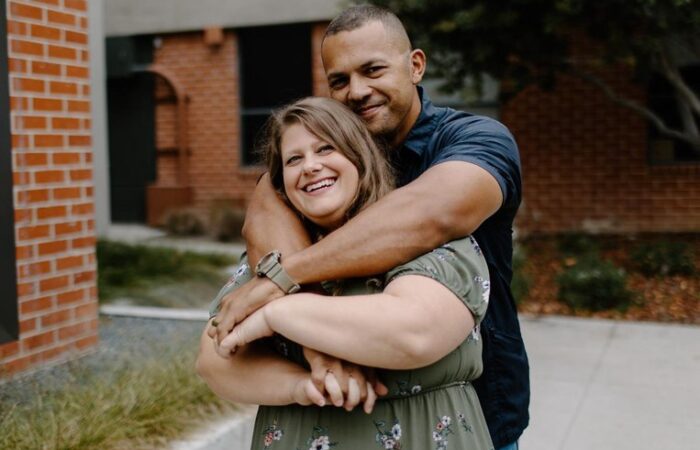
Saying “I love you” is one of the most significant moments in a relationship. It’s an emotional milestone that can mark the deepening of a connection, but it’s also a vulnerable expression that carries weight and meaning. Understanding when the right time is to say those three powerful words can be a bit tricky, as the timing varies for every couple and every relationship. Saying it too soon, too late, or for the wrong reasons can cause confusion or even harm. So, how do you know when it’s the right time to say, “I love you”? Let’s dive into the factors that can guide this important decision.
1. When You Truly Feel It
The most important factor in knowing when to say “I love you” is when you genuinely feel the emotion. Love is a deep, multifaceted feeling that often grows over time as you get to know your partner on a deeper level. You might feel it after just a few weeks, or it might take months before it fully hits you. The key is that your feelings should be rooted in a genuine emotional connection, not just fleeting infatuation or the excitement of a new relationship. Trust your instincts and your heart.
Tip: If you feel the need to say it, ask yourself: “Am I saying this because I feel it, or because I think it’s expected?” If the answer is the latter, it may be best to wait until you are certain of your feelings.
2. After Building Emotional Intimacy
Love is not just about physical attraction—it’s about emotional intimacy. Before expressing love, ensure that you’ve built a foundation of trust, communication, and vulnerability with your partner. Emotional intimacy means you can open up about your fears, dreams, and past experiences without fear of judgment. It’s through this kind of openness that deep emotional connections are made.
When you’ve shared your true selves with each other, without fear of rejection, it can be the perfect moment to express your love. This mutual vulnerability often signals the readiness to make a deeper commitment, which is what “I love you” often symbolizes.
Tip: If you feel like you’ve moved past surface-level conversation and truly know each other on an emotional and personal level, it’s a good sign you’re ready to say “I love you.”
3. When You’ve Experienced Real Moments Together
Love often grows in moments of shared experience—especially when you’ve faced challenges or celebrated victories together. Going through hardships as a couple (whether personal struggles, relationship challenges, or even outside stress) can solidify your bond. Likewise, shared joyous moments, like celebrating an achievement or supporting each other through a tough time, can deepen your emotional connection.
If you’ve had a series of experiences that have shown you both how strong your bond is, it may be the right time to express your love. These experiences demonstrate to both of you that you can rely on each other and that your connection is meaningful and resilient.
Tip: Reflect on your journey together—how have you supported each other? Have you grown closer through shared experiences? These moments often signal that love is ready to be expressed.
4. When Your Relationship Is Built on Trust and Respect
Before saying “I love you,” ensure that your relationship has a strong foundation of trust and mutual respect. Love thrives in an environment where both partners feel safe, valued, and understood. If your relationship is healthy, where both of you can express yourselves openly, respect each other’s boundaries, and handle conflicts maturely, it’s a good time to express your feelings.
Trust is the bedrock of a loving relationship. If you’ve both built a sense of emotional security, where you feel comfortable being yourself around each other, then “I love you” will carry its true weight.
Tip: If you find that you and your partner trust and respect each other deeply, and both feel emotionally safe in the relationship, this is often a sign that you’re ready to say those words.
5. When You Can Envision a Future Together
Love is not just about the present moment, but also about a shared future. While it’s not necessary to have every detail of your future mapped out, it’s important that you both have an understanding of where the relationship is heading. If you can envision growing together, making plans for the future, and supporting each other in your long-term goals, saying “I love you” can solidify that vision.
Expressing love also signals a desire for deeper commitment. If you see a future with your partner and feel a sense of certainty about where the relationship is going, it’s often the right time to express that love.
Tip: If you and your partner have talked about your hopes and dreams for the future and see yourselves in each other’s lives long-term, it may be a good time to say “I love you.”
6. When Your Partner Is Ready, Too
Love is a two-way street. It’s important to remember that while you may feel ready to say “I love you,” your partner should feel the same way. Pay attention to how your partner expresses affection and whether they share similar feelings. In a healthy relationship, both partners are usually on the same emotional wavelength, even if they don’t say it at the exact same time.
If you feel that your partner is not quite ready yet, don’t rush it. Saying “I love you” when your partner isn’t emotionally ready can create pressure, and may not be reciprocated in the way you’d hoped. Wait for the right moment when both of you are emotionally aligned.
Tip: If your partner has been showing signs of affection and deep care, and you both talk openly about your relationship, this is often a good indicator that they may be ready to hear or say “I love you.”
7. When It Feels Natural and Unforced
The best time to say “I love you” is when it feels natural—not forced or rushed. Forcing the words because of pressure, external expectations, or a desire to move the relationship forward can dilute the meaning of the phrase. Let the moment come organically, when the words reflect the depth of your connection and the time feels right.
There’s no need to rush—sometimes love reveals itself gradually, and saying “I love you” will come in a moment that feels right for both of you.
Tip: If the moment feels right, and the words come from a place of genuine emotion, that’s the perfect time to say “I love you.”
Conclusion: Timing is Everything
Knowing when to say “I love you” is not an exact science, but understanding the timing can make the words all the more meaningful. When you’ve built a strong emotional foundation, shared meaningful experiences, and are both emotionally ready, the timing will naturally align. Take the time to nurture the relationship and ensure that your love is genuine, respectful, and grounded in mutual trust. When you feel confident in your love and in your connection, you’ll know the right moment to express it—and it will be all the more powerful because of it.
Tags:
Subscribe To Get Update Latest Blog Post
No Credit Card Required



